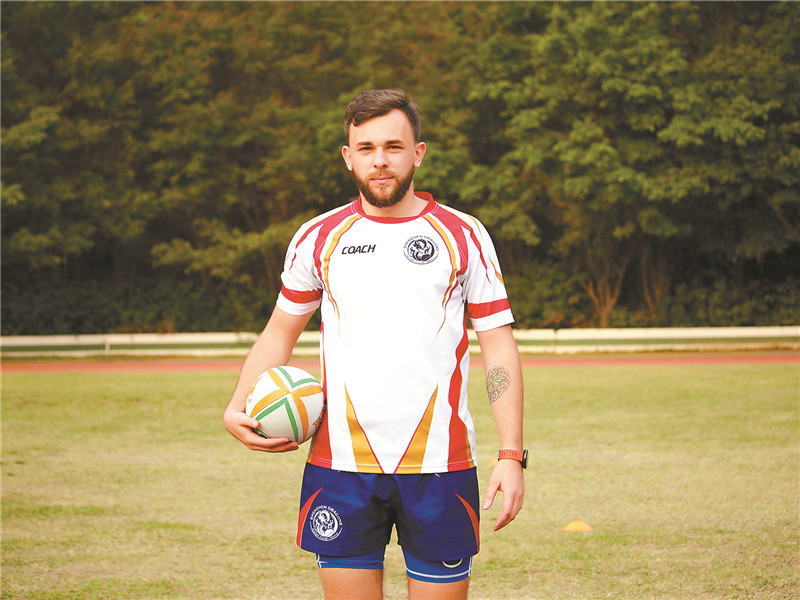Ukrainian man promotes rugby culture
Writer: Zhang Yang | Editor: Jane Chen | From: | Updated: 2017-12-07

Email of the writer: nicolezyyy@163.com
When talking about rugby, Illia Nadenenko kept mentioning keywords like teamwork, respect and kindness. He said rugby is not only a sport, but also a culture that encourages people to work with their teammates and respect their opponents.
The 25-year-old from Ukraine is the chief executive of Little Dragons Shenzhen Rugby Club. The club has been providing rugby training for kids between 6 and 15 years old for a year. It also works with local communities and schools in Shenzhen to introduce rugby to more children.
According to Nadenenko, promoting rugby in China is not an easy task because most people have no idea what it is.
He said many Chinese confuse rugby with American football because both sports are called “ganlanqiu” in Chinese.
“Just because of TV and not enough of promotion, as soon as people on the Chinese mainland hear ganlanqiu, they all start to think about American football,” Nadenenko said. “I personally think that there should be another word for rugby, not just ganlanqiu.”
According to Nadenenko, Rugby is actually a town in England. “It is the name of the town where the sport started from,” he said, adding that he found it pretty sad that such a great sport isn’t promoted enough in China.
Nadenenko started playing rugby when he was 14 years old and his rugby team is more like a family to him. He said many Chinese kids sometimes lack the idea of teamwork, and he hopes they can learn the value of teamwork and befriend their teammates when playing rugby.
He said rugby also teaches people to respect their opponents. “For rugby, it’s a tradition that when you finish the game, it doesn’t matter if you win or lose, you shake the hands and you hug your opponents,” he said, adding that it’s like a rule that players from both teams will hang out together after every game.
Nadenenko came to Shenzhen six years ago to study Chinese at Shenzhen University, and rugby helped him blend into the city soon after his arrival. “As soon as I arrived in Shenzhen, one of the first things I did was to find a local rugby club,” he said.
Currently, there are around 70 active students, mostly Chinese, in Nadenenko’s rugby club. The club has three to four coaches, and all of them are expats. Nadenenko said that all of the rugby classes are in English so that children can also improve their English while learning to play rugby.
He said the club’s biggest achievement this year was winning second place in a national rugby tournament in Beijing early last month.
Nadenenko has set an ambitious goal for his rugby team — becoming the strongest team in China. “I see a big future for the kids and the club, and I see a big future for rugby in China,” he said.